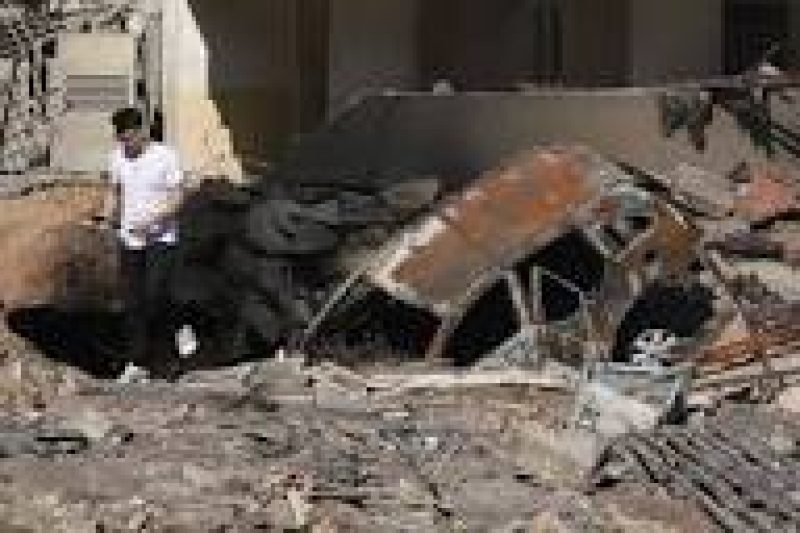- Net FDI in BD jumps over 200 percent in Q3 of 2025: BIDA |
- Quilt makers race against time as severe cold grips Lalmonirhat |
- Dhaka's air quality turns ‘very unhealthy’ on Monday |
- Rohingya Pin Hopes on UN Genocide Hearing for Justice |
- Trump Says Open to Meeting Venezuela’s Interim Leader |
Israel Launches First Airstrike in Central Beirut

On Monday, an Israeli airstrike on a residential building in Beirut resulted in the deaths of four individuals, marking the first attack in the heart of the city since the escalation of conflict following last year's Hamas attack on Israel. This strike underscores a shift in Israel's military focus from Gaza to Lebanon, as tensions continue to rise in the region.
The Lebanese health ministry reported that Israeli airstrikes on Sunday alone left at least 105 people dead and 359 injured. The drone strike on Monday specifically targeted an apartment associated with members of the Lebanese Islamist group Jamaa Islamiya in the Kola district, situated near the route to Beirut airport.
The Popular Front for the Liberation of Palestine (PFLP) confirmed that three of its members were killed in the attack, including military security chief Mohammad Abdel-Aal. Footage from the scene revealed significant destruction, with part of the building partially collapsed.
For nearly a year, Hezbollah has been engaged in cross-border confrontations with Israel, asserting its support for Hamas militants. As of last week, Israeli military operations have claimed hundreds of lives in Lebanon, marking the deadliest period since the Lebanese civil war.
International responses have begun to emerge. French Foreign Minister Jean-Noel Barrot visited Lebanon, advocating for an immediate cessation of hostilities. Saudi Arabia expressed grave concern for Lebanon's sovereignty amidst the escalating violence.
Amid fears of a broader conflict in the Middle East, Pope Francis remarked on the moral implications of disproportionate military responses. Meanwhile, Israel's military strategy aims to diminish Hezbollah's operational capabilities and eliminate its leadership.
In related developments, Israeli airstrikes also targeted positions in Yemen, further complicating the regional security landscape. The death of Hezbollah leader Hassan Nasrallah in a recent strike has significantly impacted the group, prompting mixed reactions within Israel and raising concerns about potential retaliation.
The humanitarian toll continues to rise, with over 200,000 people displaced within Lebanon, according to UN estimates, and Prime Minister Najib Mikati warning of a potential crisis surpassing any seen in the nation’s history.
As the conflict intensifies, the ongoing violence in Gaza has resulted in staggering casualties, raising alarms over the need for diplomatic intervention to prevent a wider war.

